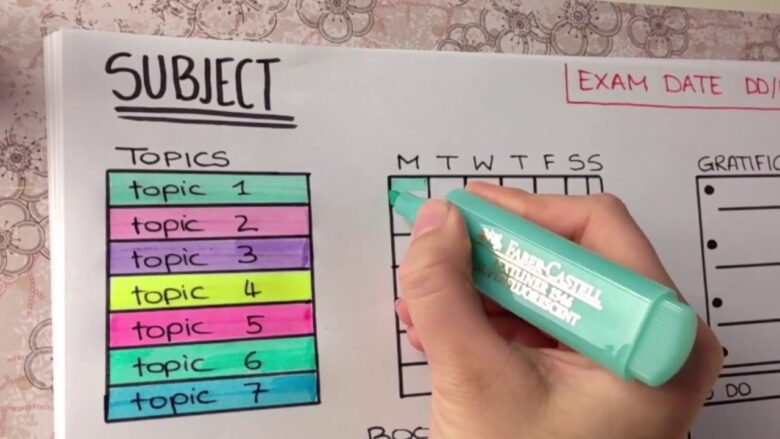You will always want the best for your kids, and exams are a big part of that. It may seem like there is little you can do to help when it comes to getting the best out of studying, especially if it has been a long time since you were in school. However, there are some great practical ways you can help your child prepare for big exams, even if you know nothing about the subject they are studying. Read on to find out more.
1. Scheduling

The best way to succeed is to plan to succeed, and this starts with scheduling. There is no point in your child starting to revise the night before the exam. They will panic about leaving it too late and won’t be able to digest the information they are trying to revise. Revision needs to start several weeks beforehand, and build up in intensity as the exam date gets closer to maximize the preparation. Help your child to prepare a revision schedule that will help them to make the most out of the time they have available and save any last-minute panicking.
2. Taking Breaks
Don’t forget to schedule in breaks to avoid overloading them, as this will hinder rather than help their concentration. A good rule of thumb is to work for 45 minutes in each hour and spend the other 15 minutes taking a break. Encourage your child to get up from the computer or desk during this time and walk around the room. Fixing a snack can be a good way to take their mind away from work for a few minutes. However, encourage them to avoid spending this time on social media or watching TV as they could find that this leads to a longer break than they had anticipated, and they will find it harder to get back to work.
3. Study Space

Make sure your child has a quiet place to study that is away from the hub of the house. It is a good idea to give them access to the internet to make the most of their study time as this will give them some great research materials and study tips. For example, site like Pretest Plus offer sample questions and videos to help your child make the most of their revision and ace their exams. However, try to limit other electronics such as their phone to encourage them to study rather than chat to their friends. Social media and e-mail should be closed during this time so that they are not distracted by messages.
Try to limit the noise in the house as much as possible. For example, ask other children to keep out of study space and not play loud music during this time. Limit housework to quiet chores, such as laundry rather than vacuuming to reduce outside noise and distractions.
Make sure your child has everything they need to hand before they start studying as this will stop them getting distracted by having to get up and look for it. Make sure their printer has enough paper and ink and their desk has writing material and any other items they need.
4. Ask Questions
Ask questions about what your child is studying and get them to explain topics to you. This will help them to formulate their revision in their own mind and allow them time to explore the concept. If they can explain their studies to you, this will make it easier for them to work out how to explain it on an exam paper too. You can ask questions to show that you are interested in what they are doing, or use previous exam papers or online resources to test their knowledge of a subject. For most topics, there are a limited number of questions they can be asked in an exam, so if your child has practiced answering many questions beforehand, there is less chance of something totally brand-new coming up on the exam paper. Click here for more information.
5. Eating

Make sure your child eats well in the run up to the exam. Oily fish contains omega 3 which will keep the brain working well. Bananas boost serotonin levels, regulate blood sugar, and keep the blood pressure down which will help your child to feel less stressed. Slow-release carbs and lots of vegetables will allow them to feel fuller for longer.
It can be tempting to buy sugary treats that they can grab on the go, but these are more likely to make them feel tired and send their energy levels crashing down after the initial sugar high. Therefore, high sugar or fatty foods are best avoided during revision time.
6. Exercise
Taking enough exercise is important during revision time. Exercise will help with exam performance as it releases chemicals in the brain that regulate sleep, boost energy and concentration and reduce stress. This does not have to take a long time. A short walk or run will help your child to release these chemicals. You could even show your support by joining them and feeling the benefits too.
7. Sleep

Sleep is an important study technique and shouldn’t be skimped on when revising. Getting at least eight hours sleep is recommended. Rest will help your child to build a better memory, improve concentration and reduce stress.
Your child may want to stay up late revising, but a late night will hinder their performance the following day and stop them revising as well as they could. A good night’s sleep is especially important the night before a big exam. Encourage your child to put their books and study aids away early and relax before they go to bed. Make sure that they do not stay up late and that they have everything they need for the day ahead. This will help them relax and make sure they are not panicking and rushing about on the morning of the exam.
Follow these tips to ensure that you have done everything you can to help your kids prepare for big exams. The rest is up to them.

